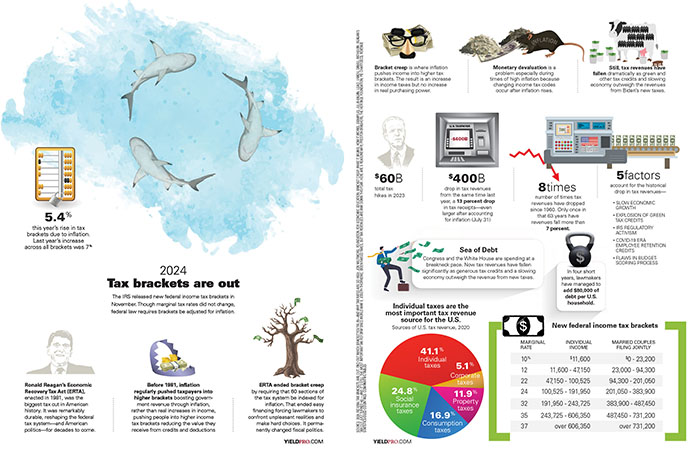One of your best front desk personnel has just returned from vacation. Anticipating the annual “vacation picture” ritual, you are stunned to see the marked change in her appearance. While her smile still warms your well-appointed lobby, she is wearing a hijab, the traditional headscarf of Muslim women as she has just returned from Mecca.
Your mind races from surprise to concern. Since a fashionable image is a high priority for your properties, are there rules in place to govern appearance? How will the prospective and current residents react?
Should you make an exception given her outstanding employment history? Will the need to pray five times a day be disruptive? Will other employees want their own exceptions? Is it legal to even ask any of these questions? What is the human resources department’s opinion? Should there be no action taken at all?
A BRAVE NEW WORK WORLD
Apartment managers face new challenges by a workforce growing more diverse each day. What has this diversity meant? Practically speaking, along with an increased need for multi-lingual skills and cultural understanding have come many varied religious practices that do affect the workplace. By example, Historic Landmarks for Living, a 25-year-old apartment management company with holdings from the Midwest to the Middle Atlantic States, prides itself on diversity and has a written dress code that asks each employee to come to work dressed in a professional manner.
Since enactment of Title VII of the Civil Rights Act of 1964, there have been laws protecting against discrimination of workers of different faiths. Most assuredly, these laws will come under increasing scrutiny since religion and spiritual values have taken on new meaning in the post-9/11 world.
Religious backlash in the aftermath of 9/11 has resulted in six lawsuits filed by the Federal Government. Moreover, the Equal Employer Opportunity Commission (EEOC) has negotiated settlements for over $1.4 million paid to wrongly dismissed workers of varying religious faiths and Middle Eastern or Southeast Asian backgrounds since 9/11. In 2002 alone, Muslims filed 719 out of the total 2,572 religious discrimination complaints filed with the EEOC.
Coupled with the evolving notion of success, people are no longer as willing to leave their core beliefs at home for the sake of the corporation. A joint survey commissioned by the Tanenbaum Center for Interreligious Understanding and the Society for Human Resource Management notes that the diversity of religions has dramatically increased while the need to accommodate religious requests has risen by 20% in the last five years.
Emboldened by their religious beliefs, people are just as eager to take action byfirst filing a complaint with the Equal Employment Opportunity Commission (EEOC), then proceeding with legal action to defend rights grounded by the US Constitution: freedom of religion. During 2002, of the 84,442 complaints filed, religion ranked third behind sex and disability.
CHANGES FROM THE TOP
Seeking more enlightenment in daily business life is not just a trend among employees. Executives are feeling the pressure while their reputations are on the line. Fueling the desire for spirituality at work are the growing criminal prosecutions emanating from questionable ethics at WorldCom and Wal-Mart. Just last Fall, the head of the New York Stock Exchange was forced to step aside over an exorbitant salary and benefits package.
Workers are angered by bankrupt pension funds and discontinued health benefits while top brass receive generous severance packages. A recent survey by KRC Research indicates that 61% of workers feel their businesses or workplaces would benefit from more spirituality. Today, more than 10,000 Bible study groups hold scheduled meetings at work based on research by the Fellowship for Companies for Christ International.
Top business schools are emphasizing ethics through guest speaker seminars and coursework alongside traditional accounting course offerings. Audiences for books such as “Saving the Corporate Soul & (Who Knows?) Maybe Your Own,” “Believers in Business,” “Jesus, CEO,” and “The Seven Habits of Highly Effective People” have propelled them to the best-seller list. “God Is My CEO” by Larry Julian, scheduled for distribution in Asia and Europe, has spawned an entire series.
Smart executives seek to cultivate a corporate culture based on sound ethical principals while not beating employees over the head with religion. According to Gary Costley, CEO of International Multifoods, it is an abuse of power to attempt to convert an employee in the “classical evangelism” sense. Yet, it is growing in acceptance to have a spiritually based message blending many faiths emanating from the executive suite.
IGNORE THESE TRENDS AT YOUR PERIL
While Martha Stewart’s insider-trading scandal has captured front-page headlines for over a year, by comparison, a little publicized lawsuit by a former employee, an Orthodox Jew, against his corporation Living OmniMedia may have far greater impact.
After the death of his father, Avner Elizarov donned a yarmulke and requested travel time to pray at his synagogue during the noon hour. Documents allege that a manager reacted with anti-Semitic remarks to this request. With his job officially “downsized” after time off for Passover, he was let go.
According to the official EEOC website, “Title VII requires an employer to reasonably accommodate the religious practices of an employee or prospective employee, unless doing so would create undue hardships for the employer. It goes on to say that some reasonable religious accommodations that employers may be required to provide workers include leave for religious observances, time and/or place to pray, and ability to wear religious garb.”
A spokesman for the EEOC states that businesses with 15 or more employees are required to comply with Title VII. Take heed as smaller businesses have shown the greatest growth spurt in the number of discrimination complaints.
A DELICATE BALANCE
Nevertheless, accommodating disparate practices and beliefs may well strain long-standing policies that have served your company well. In the case of Disney World in Orlando, Florida, rather than provide a multitude of religious services, they have chosen to eliminate the Protestant and Catholic worship services held since 1975 citing unfairness to other faiths.
So, what is at stake and where do you draw the line? Clearly, religion and religious practices are sensitive subjects with as many perspectives as there are people. Nevertheless, it is incumbent upon managers and human resource personnel to be properly educated in the state and federal laws governing religion in the workplace as well as having a thorough knowledge of privacy rights and employee leave policies.
Sensitivity training for the entire staff, not just managers, helps foster a tolerant and flexible environment. A sound corporate culture must respect the needs of the individual employee while at the same time provide a healthy workplace.
Martha Rooney, a manager who will soon mark eleven years with Historic Landmarks for Living, does not worry about these issues. “There is such a family spirit through this company that staff ‘sticks and stays’ for years. Our owners have an open-door policy and have demonstrated a willingness to help and support all of the employees, so much so we just don’t leave. We attend each other’s bereavements, family celebrations and this spirit extends to our diverse community of residents, as well.”
THE LOBBY REVISITED
When faced with this new reality, what should the property manager in the opening scene do?
Take care in what you say. If you acknowledge this change in appearance verbally, it must be thoughtful, sensitive, and certainly non-offensive in any way.
Any well-managed facility will have a written dress code vetted by the corporate attorney that each employee receives at the time of hiring. The law states that an employer must make reasonable accommodations, including for religious beliefs, including the wearing of religious garb as long as it will not cause a hardship to the business. It is the duty of the employer to make an offer to accommodate the employee, however, the employer does not have to “negotiate.” State courts vary in their interpretation of accommodation, but once it is determined that an effort was made there is no need for the employer to prove undue hardship.
It is the legal responsibility of the employer to provide a work environment that is free of harassment because of affiliation, physical or cultural traits and clothing, perception, and association stemming from religion or ethnic origins.
Author: Sheryl P. Simons















